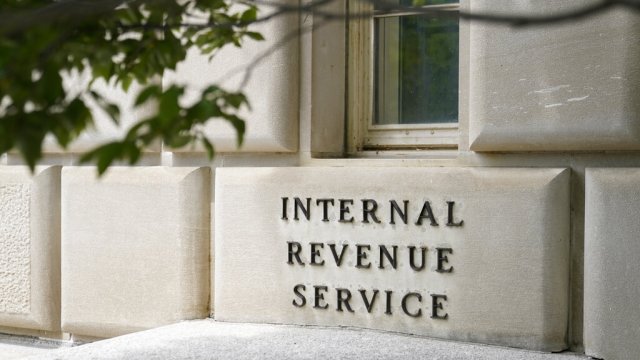The U.S. Internal Revenue Service launched a new tax-filing pilot program that won't come at any extra cost to taxpayers, on a limited basis and available only to some in certain areas to start.
Taxpayers who qualify — starting with state and federal government employees in certain localities — are able to use the taxpayer-funded program starting on Jan. 29.
The new government-run program for filing returns is called Direct File, and it's opened up to government employees with specific tax-filing situations in 12 U.S. states.
SEE MORE: Treasury secretary pushes 'historic' economy, tries to improve outlook
The IRS will open up the feature to taxpayers in other categoriesin February and March to offer access to some in the private sector in those same 12 states where the initial pilot program has launched.
The new program doesn't currently allow for all credits and deductions. For instance, you can deduct student loan interest, but you can't deduct an electric vehicle tax credit. You can submit a W-2, but if you are an independent contractor, you can't submit your 1099.
When Scripps News asked the IRS why the program is so limited, officials said the new direct filing system is just a pilot and is designed to be intentionally small for now. They still believe hundreds of thousands of Americans with simple tax information can benefit from it.
The agency says filers will get step-by-step guidance, the ability to file federal returns without any additional cost, "real-time"support online, service in Spanish and English, and the ability to access the service on smartphones, tablets, laptops and desktop computers.
There is the possibility that services like this from the IRS could remove the need to pay for tax preparation services in the private sector.
California, Arizona, Florida, Massachusetts, Nevada, New York, South Dakota, New Hampshire, Texas, Washington, Tennessee and Wyoming will be some of the first states to have access to Direct File.
The IRS has been able to make updates to services and staffing, in part, because of an $80 billion 10-year funding allocation stemming from the Inflation Reduction Act.
The Internal Revenue Service has said it was focusing attention in recent tax seasons on the wealthy to collect millions of dollars in back taxes.
Trending stories at Scrippsnews.com



